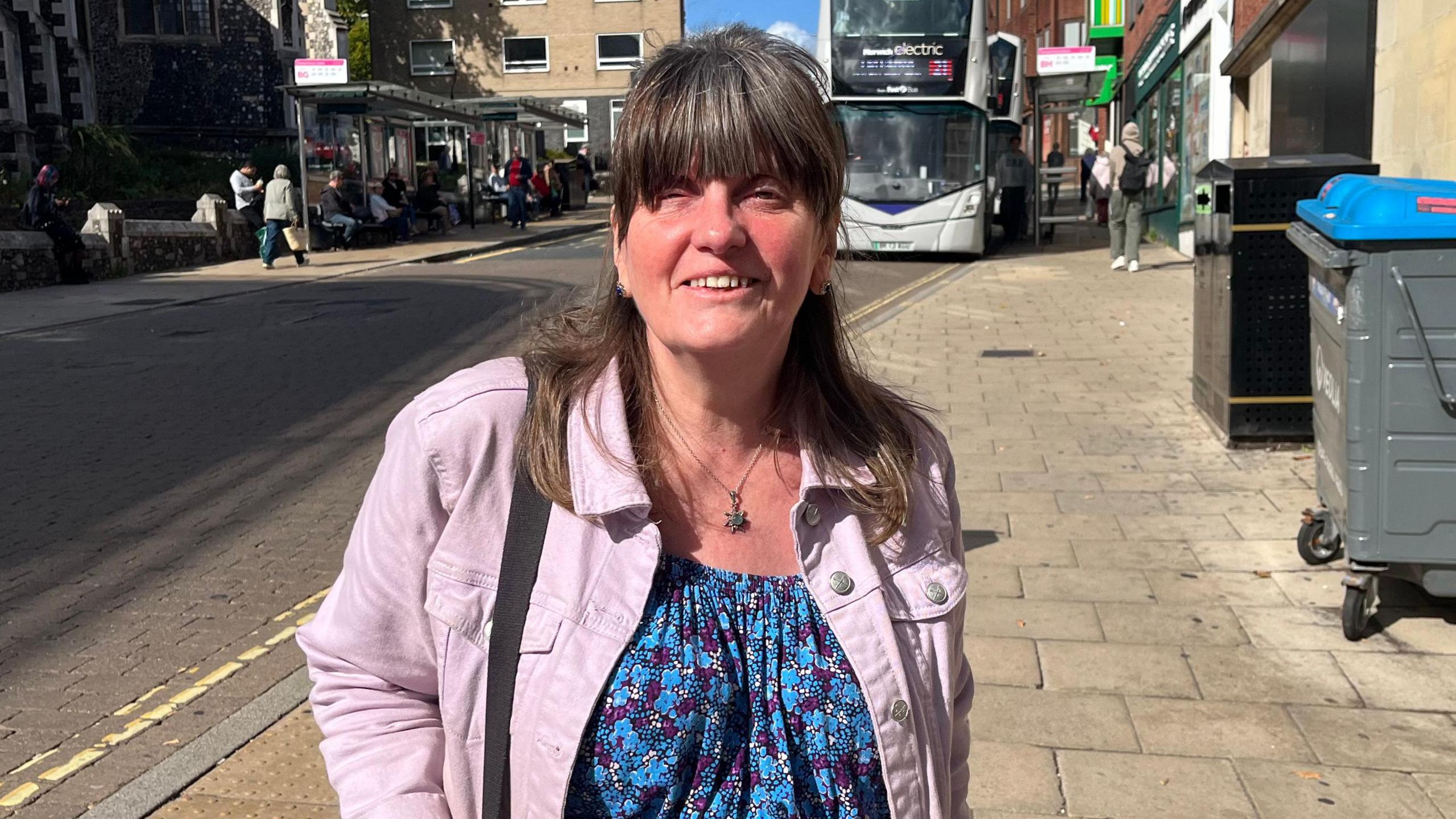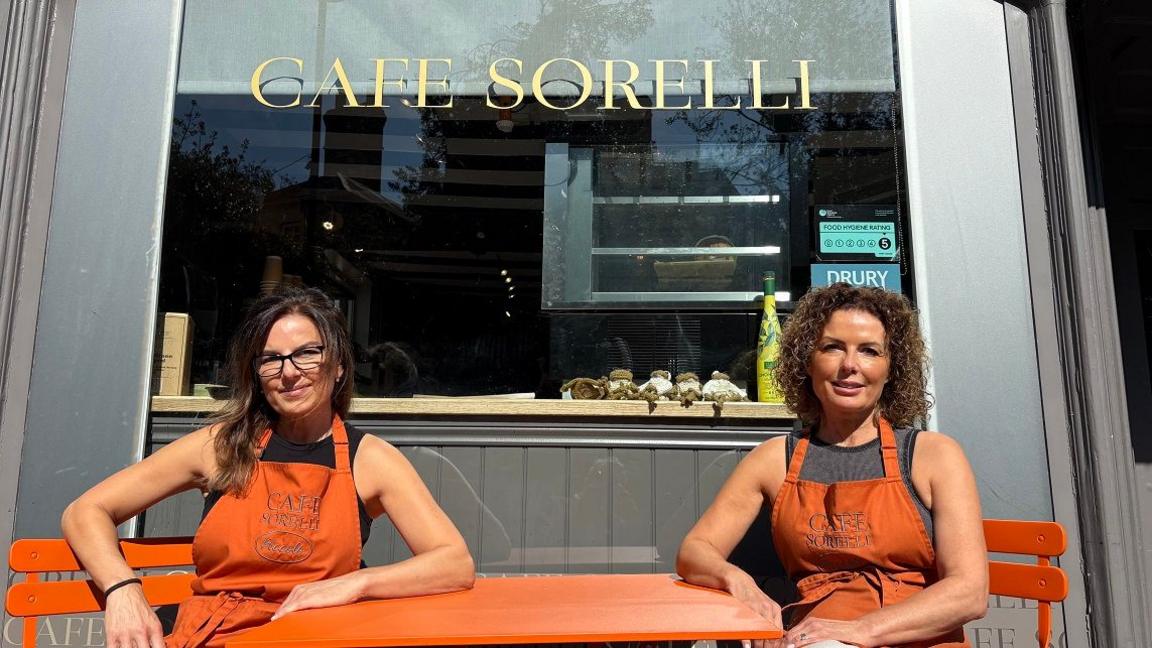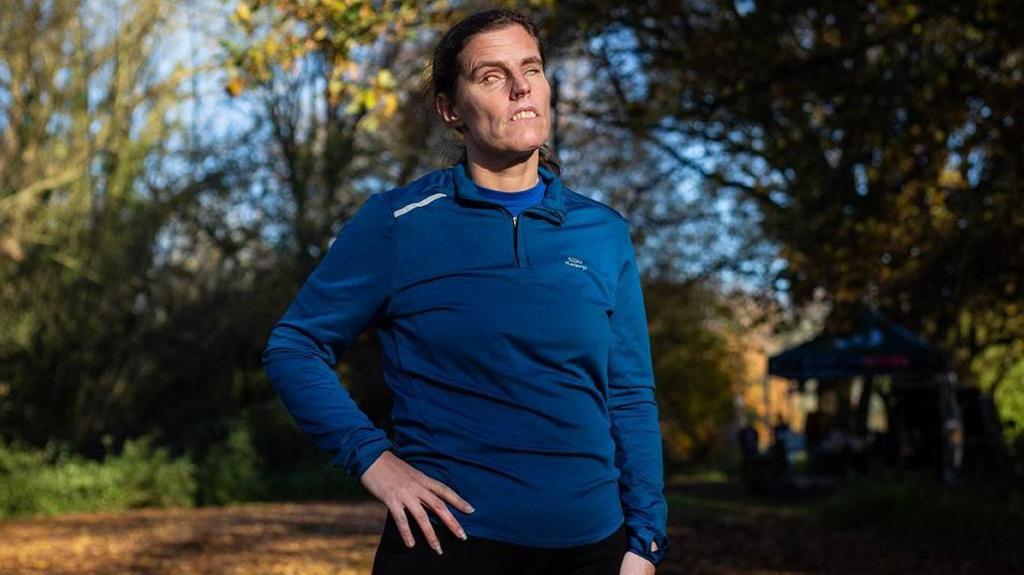Guide dog owner never 'completely safe' in city

Bernie Reddington said crossing a road without a suitable pedestrian crossing means going into an "unknown area"
- Published
A blind campaigner and guide dog owner says she does not ever feel completely safe independently navigating a city centre's pavements due to bad parking.
The Royal National Institute of Blind People (RNIB), external said 61% of people surveyed said they were unable to make all the journeys they wanted to, with 82% saying vehicles parked on pavements was a big barrier.
Bernie Reddington, RNIB regional campaigns officer, said other barriers to getting around Norwich included poorly ridden e-scooters and a lack of pedestrian crossings.
She said: "I don't think I would come out into the city centre if I was using a cane unless I had someone with me, and that takes away my independence."
For Ms Reddington, navigating round a bustling city centre poses a variety of challenges including cars or lorries parked on pavements.
"It's selfishness on the part of people who do it," she said.
"It's not just me, it's people using a wheelchair, people with a pushchair, people with mobility aids — having to walk in the road is unsafe.
"It's not acceptable; it's just so stressful... crossing the road again means going in an unknown area."
An increasing challenge includes abandoned e-bikes or e-scooters on the pavement or the manner of people riding them.
"E-scooters and bikes just whizzing past you on areas where there's no dedicated space for pedestrians or cyclists and that's actually really, really difficult because you don't ever feel completely safe," she said.
'You take your life in your hands'
Ms Reddington relies on her guide dog Clara, however, without her, she said walking around with a stick was "very, very scary".
Loud music was also another barrier which could leave her feeling "disorientated" and unable to hear her surroundings, she added.
According to the RNIB, 11% of people who had been injured by a street obstacle in the past three months had injuries that required hospital treatment, including for broken bones or teeth.
Erik Matthies, RNIB policy lead, said: "Streets across the UK have transformed significantly in recent years, with new pavement dining areas, more cycle lanes, e-scooters and silent electric vehicles becoming commonplace.
"Yet, while technology and public understanding have advanced in many areas, blind and partially sighted people are now facing more barriers in the street environment than ever before."
Get in touch
Do you have a story suggestion for Norfolk?
Follow Norfolk news on BBC Sounds, Facebook, external, Instagram, external and X, external.
Related topics
- Published23 September

- Published14 September

- Published10 November 2024
